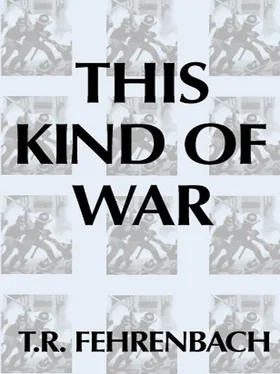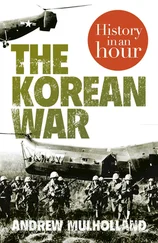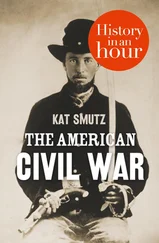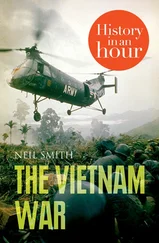Finally, before they got off the train, a number of them defecated in the aisles. Men, and women, come home in different ways.
From the silty Yellow Sea, on the west, to the cold gray waters of the Sea of Japan, on the east, the armies facing each other along the line of contact each withdrew two kilometers to establish the agreed demilitarized zone.
As the U.N. withdrew, its storied hills—scabrous Baldy, torn Pork Chop, Bloody, Heartbreak, Sniper, Arrowhead, White Horse, Kelly, Nori, The Hook, Gibraltar, and a hundred more—drenched in blood, hallowed by human courage, were abandoned. They lay in no man's land, blasted and reeking symbols of man's interminable collision with man. No monuments would mark them, and no pilgrims would visit their rubbled graveyards.
With another spring, or perhaps two, the pine and forsythia and wild plum might grow on them once more, thrusting upward green and fresh from the rusting rubble of wire, shards of shells, and moldering bones.
Except by the men who fought on them, they would be soon forgotten.
To the north of these hills the truce, hardly signed, had already been violated. New men, new arms, new modern aircraft poured across the Yalu, to new fortified bases deep within the mountains. No man knew when they might be used.
To the south, many men—only a few Americans, now, and many Koreans—stood uneasy watch, on a forgotten vigil whose end could not be foreseen. The Korean War, never declared, never ended.
More than two million human beings had died, forty thousand of them American soldiers and airmen, in what was a skirmish, nothing more. Nothing had been won, nothing gained—except that the far frontier had been held.
At a great price, a little time had been bought. The free peoples of the world might use it badly or well, as they saw fit.
| Go to Table of Contents |
40
Lessons
And ye shall hear of wars and rumours of wars: see that ye be not troubled: for all these things must come to pass, but the end is not yet.
— Matthew, 24:6.
THE KOREAN WAR ended inconclusively on 27 July 1953. Not until long afterward was it even dignified by the name of war—the governmental euphemism was Korean conflict—and it rapidly became the most forgotten war in American history. There was little in it, from near-disastrous beginning to honorable but frustrating end, that appealed to American sensibilities. Because they cannot look back on it with any sense of satisfaction, or even the haunted pride that a defeated nation sometimes finds, Americans prefer not to look back at all.
Yet men forget, as always, at their peril.
There have been millions of words written about the cold war, Communist-Western competition, and Korea. Perhaps, as Major Hanson Baldwin wrote:
The angry voices speaking shrilly in the land—the carping arguments of men who contend the war was lost and of other men who term Korea "victory"—will pass away. But the deeds of those who fought, the men who died and those who lived, beget their own posterity. Arguments and objectives, grand strategy and national policy, even Korea as a fork in the road of history, may come to have, in future generations, less meaning than the human drama of life and death in the stinking valleys and denuded hills of a peninsula where wars have raged since man first raised fist to man.
Somehow, the fateful moments when Task Force Smith first sighted the ominous approach of a powerful enemy from its green wet hills through the Korean rain, or when the 5th and 7th Marines understood that they were cut off and surrounded at frozen Yudam-ni or when General Matthew B. Ridgway asked MacArthur if he had permission to attack "if things seemed right"—these moments of life and death and human drama have more historic significance than all the words spoken in Cabinet, all the long communiqués, all the painful hammering out of the policy of containment.
For every time a nation or a people commits its sons to combat, it inevitably commits its full prestige, its hopes for the future, and the continuance of its way of life, whatever it may be. If the United States ground forces had not eventually held in Korea, Americans would have been faced with two choices: holocaust or humiliation. General, atomic war, in a last desperate attempt to save the game, would have gained Americans none of the things they seek in this world; humiliating defeat and withdrawal from Korea would have inevitably surrendered Asia to a Communist surge, destroying forever American hopes for a free and ordered society across the world.
A nation that does not prepare for all the forms of war should then renounce the use of war in national policy. A people that does not prepare to fight should then be morally prepared to surrender. To fail to prepare soldiers and citizens for limited, bloody ground action, and then to engage in it, is folly verging on the criminal.
This, from the scamper at Osan to the bloody withdrawal from the Ch'ongch'on to the heroic resistance at Chipyong-ni, the Imjin, the Soyang, and Pork Chop Hill, is a lesson Americans and others must take from Korea.
Because the Korean War was not, as most large wars were, the end of an era, but only a bloody skirmish in the middle of the post-World War II age, no definitive history can yet be written. The principal figures of the Korean War are still living, and many are still in power. The game still goes on. Yet Korea set certain patterns for the future.
The Communist powers, notably Soviet Russia, would remember the rapid escalation from a small, almost civil-type conflict into a large-scale action involving most of the major powers of the world. After Korea, overt, brutal armed aggression, which had produced so violent—and unexpected—a counteraction from the West, would be avoided. Now the emphasis would be on infiltration, subversion, and insurgency to gain Communist ends in the fringe areas; the trick was never again, as with the South Korean invasion, to give the West a clear moral issue.
Communist planners, studying the lessons of Korea, could not help wondering what the result might have been could they have slipped several North Korean divisions into the South clandestinely, keeping them supplied across a fluid border. They might well wonder if the West would have then sprung to the defense of autocratic old Dr. Syngman Rhee, even though the interests of the West were equally imperiled.
The Red Chinese, impervious to human loss and suffering, gloried in their sudden leap to large-power status—for by defying the United Nations, and holding the Western armies in check, they became a great power in the East. They learned many of the lessons of modern ground warfare, and proved that Chinese armies could perform creditably in the field. They, more than the Soviets, would be eager to try again, for they had less to lose; but they still could not move without their industrial ally's aid and consent.
Neither power would desire general war, for both were realists, not perhaps in what they say, but in what they do.
They were balked, not defeated. Inevitably, they would try again, if not Korea, elsewhere. Within a year after Korean fighting ended, they would succeed in Vietnam, this time without overt aggression.
From the Korean War the United States drew troubled conclusions. American policy had been to contain Communism along the parallel, and in this, American policy succeeded. But not one realized, at the beginning, how exceedingly costly such containment would be. The war reaffirmed in American minds the distaste for land warfare on the continent of Asia, the avoidance of which has always been a foundation of United States policy. But the war proved that containment in Asia could not be forged with nuclear bombs and that threats were not enough, unless the United States intended to answer a Communist pinprick with general holocaust.
Читать дальше












